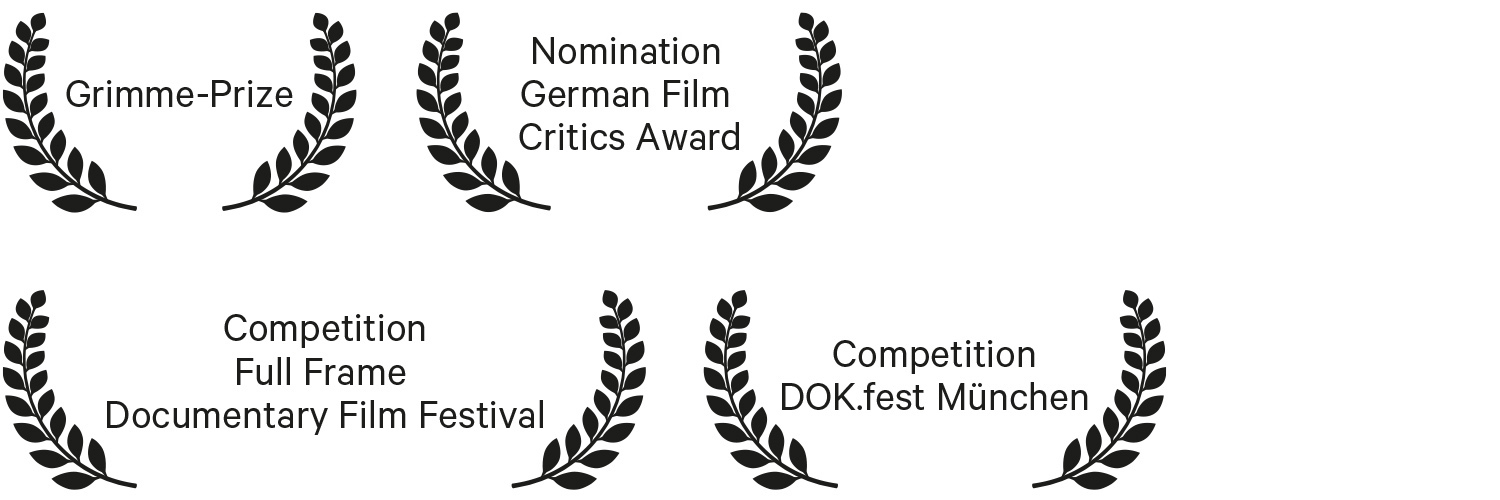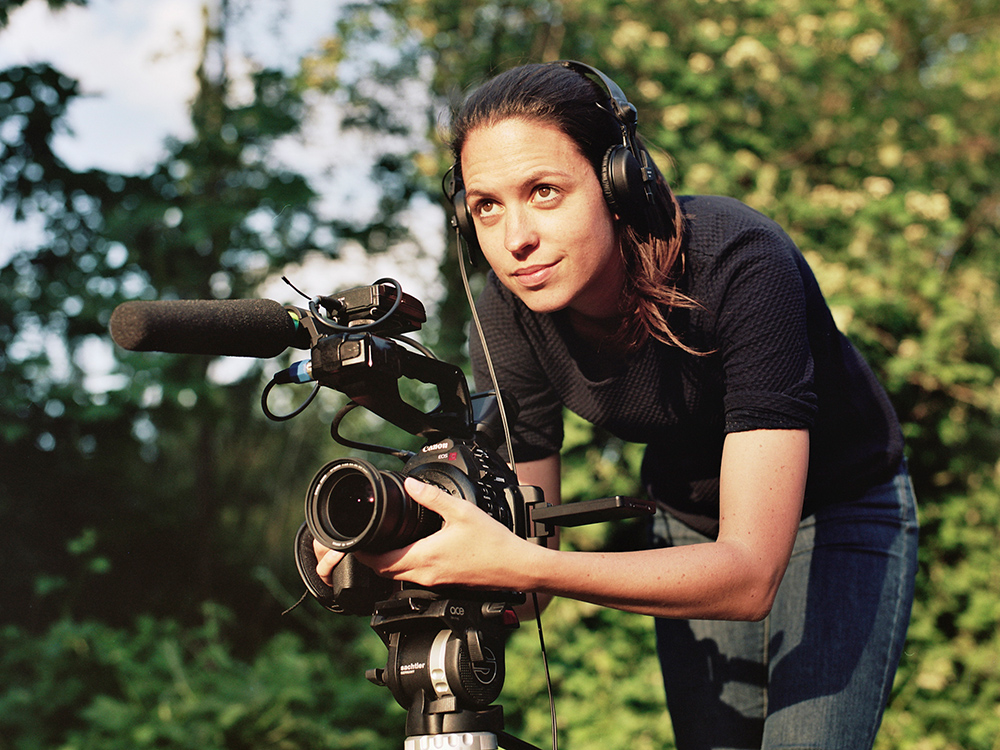I’M OKAY
(95 min., Germany, 2016)
(95 min., Germany, 2016)
(95 min., Germany, 2016)
Djaner, 7, can hardly believe his eyes when he joins his new classmates on his first day at a German primary school: It’s Lena’s birthday and she receives a candle and a crayon as gifts. And the whole class sings a song for her. In Macedonia, Djaner’s former homeland, the only thing the Roma boy associates with school is the fear of being beaten. Djaner has fled to Germany with his brother and depressive mother. Here, in a country bent on deporting him and his family, he yearns for a place he can call home.
In the beginning, 11-year-old Ghofran hopes that she’ll be able to leave Germany soon. She listens to Arabic hip hop and her thoughts continue to revolve around Syria. At the same time, her father, Adel, struggles to establish a new life in Hamburg and stay there for good. At the school where Ghofran learns German she encounters girls who “know no limits”, allowed to do what they want. What parts of this will she adopt for herself? What is she willing to sacrifice in return?
Grimme prizewinner Pia Lenz accompanied Ghofran and Djaner with her camera over the course of a year on their quest to find a place in this world so foreign to them. The children’s perspective unveils an undisguised, highly moving look at this new co-existence in Germany. The documentary film I’M OKAY (original title: ALLES GUT) poses the question: How do we give a home to those whose most urgent need is a future?
Screenplay/Director: Pia Lenz
Camera: Pia Lenz
Editor: Stephan Haase
Music: The Notwist
Commissioning Editors: Barbara Denz (NDR), Gudrun Hanke-El Ghomri (SWR)
Production: PIER 53 Filmproduktion

DOK.fest Munich, Germany
Full Frame Documentary Film Festival, Durham, USA
One World Human Rights Filmfestival, Prague, Czech Republic
International Human Rights Filmfestival, Nuremberg, Germany
San Francisco Jewish Film Festival, USA
Nordische Filmtage, Lübeck, Germany
Filmkunstfest Mecklenburg-Vorpommern, Germany
“Pia Lenz accompanied the children for a whole year, mostly on her own with a small handheld camera. That enabled her to get very close to the families. Impressively near, wonderfully close-up and yet terribly intimate. ‛ALLES GUT’ turns us into accomplices for their hopes and anxieties – and that’s hard to bear when deportation looms at the end.”
(Christoph Twickel, Spiegel Online)
“It has become rare that listening is done with this kind of gentle concentration, that everything’s not switched off when silence or helplessness prevails (…) This candor in displaying true-to-life conflicts that can’t be easily solved, the enduring of things that can’t be repaired or organized just like that – it’s deeply awe-inspiring.”
(Carolin Emcke, journalist)
“What Pia Lenz captures in her documentary about two refugee families’ first year in Hamburg is an unbearable status between hope and fear. (…) The directress shows in an unbiased and tactfully sensitive way just how exhausting a new beginning is for all sides.”
(Anna Fastabend, Süddeutsche Zeitung)
“The film recounts calmly and with delicate care what it means to arrive in Germany. At the end Ghofran even learns how to ride a bicycle – prohibited by law for girls in Syria.”
(Annette Yang, ARD-Nachtmagazin)
“The film doesn’t lecture and elucidate. It simply makes us aware that ‛integration’ still deals with human beings who first of all are who they are, and it’s not till the second step that they can be a part of a society defined on whatever basis. The same way it is for every one of us.”
(Nadja Schlüter, jetzt.de)
“Now the issue presents itself: Will we manage to integrate the ones who are allowed to stay here, and – will they manage, too? (…) The film ‛ALLES GUT’ shows just how difficult this is.”
(Gabi Bauer, presenter on ARD-Nachtmagazin)
“ ‛ALLES GUT’ strikes at a gap within social discourse.”
(René Martens, taz)
“The filmmaker’s observational closeness to the two children progresses to a nonverbal level of verisimilitude that is very touching.”
(Bianka Piringer, kino-zeit.de)
“Pia Lenz has made an important film that should be viewed by lots of people.”
(Thomas Engel, programmkino.de)

What inspired you to make I’M OKAY?
Pia Lenz: The idea for the film I’M OKAY had already originated in the spring of 2015. Back then I was sitting together with my executive producers, Carsten Rau and Hauke Wendler, who had just celebrated the feature-film release of their documentary A VERY GERMAN WELCOME (original title: WILLKOMMEN AUF DEUTSCH) in movie theaters. With the roughly 200 panel discussions that were held at movie theaters, particularly in the case of A VERY GERMAN WELCOME we had the impression at an early stage that, in light of a political and social situation that was tensed to such a degree, a documentary film truly had something to say. That something can flow back from the cinema into society.
Then it took no time at all for us to reach the point where these stories, these fates of hundreds of thousands of refugees who had come to Germany will keep going on, that they’re not going to stop simply because the people received somewhere to stay or because the neighbor might have approached them in a friendly way. It was the first time we began to give some thought to a film like I’M OKAY; a film whose focal point is not on the “welcome to Germany culture” but on the issues concerning integrating hundreds of thousands of refugees into this society.
What was the initial idea you had?
Pia Lenz: For I’M OKAY it was important to me from the very start to especially include the perspective from the children’s side. Because what often takes years with grown-ups occurs with kids within the span of a few months: new school, new language, new friends. Kids get going right away: they experience their first successes, failures, they carry on and find themselves a place in a society that’s foreign to them. I found that exciting, and that’s why I wanted to tell about this monumental issue called integration.
In your film you follow two refugee families across a time frame that’s very dramatic for them. How do the two families differ from one another?
Pia Lenz: In the debate revolving around fleeing and migration you rapidly got the feeling that you’re supposed to make a difference between “good” and “bad” refugees. Adel’s family fled from Syria to escape the warfare and bombs, Djaner’s family fled from Macedonia to escape discrimination and poverty.
In publicly held discussion the one group represents the “good” ones, the other is supposed to return to the Balkan region as fast as possible. That’s how many see it in Germany, and that shapes the debate, too. In the process, what unites both families is not only their new residence but – and I perceived this very strongly from the very beginning – also their desire for a life in safety. At the same time they have very different pasts, different perspectives, and they face very different challenges. That played a key role for me in choosing the families.
How difficult was it to be on hand with the camera at important moments?
Pia Lenz: The shootings weren’t easy. I filmed the major portion of I’M OKAY alone with a small camera to be able to observe the families’ everyday lives and their development as authentically as possible. On very few days I had a colleague along, a friend of mine who filmed prominent occurrences using a second camera.
I spent a great deal of time with the families last year so that I could truly experience the reality of their lives with them and depict it faithfully. For a large part of that time I didn’t shoot at all. I talked, ate, played and sat silently with them instead. Everything that was possible at the moment. Often it’s the human being that’s called for and less of the documentary filmmaker – if it’s even possible to split them up in the first place. But ultimately it was the only way to enable me and the camera to become a part of these families’ daily lives.
Your film has now been screened at the first festivals. What were the audiences’ reactions like?
Pia Lenz: The audience reacted very emotionally to the film. As a filmmaker that really touched me, especially because it was the first time I was able to share the experience in person. With I’M OKAY a number of viewers felt themselves very much reminded of their own experiences in refugee relief and described the film as very true-to-life.
PIER 53 Filmproduktion
in co-production with
Norddeutscher Rundfunk
Südwestrundfunk
funded by
Filmfund Hamburg Schleswig-Holstein
Director/Screenplay/Camera/Original Sound
Pia Lenz
Film Editor
Stephan Haase
Additional Camera/Original Sound
Henning Wirtz
Music
The Notwist
Aerial Shots
Matthias Allendorf und Haydar Biyik
Copterproject
Translations
Laaziza Ollesh
Esra Özer
Khaled Almaani
Samir Faltas
Transcription
Anne Schmalfeldt
Still Photography
Henning Wirtz
Image Editing
Oliver Stammel
Graphic Consulting
Katja Reise
Sound Design and Mixing
Yannick Rehder
Tonik Studio
Production Assistant
Andrea Pittlik
Production Management
Tim Carlberg (NDR)
Thomas Lorenz (SWR)
Commissioning Editors
Barbara Denz (NDR)
Gudrun Hanke-El Ghomri (SWR)
Executive Producers
Carsten Rau and Hauke Wendler

